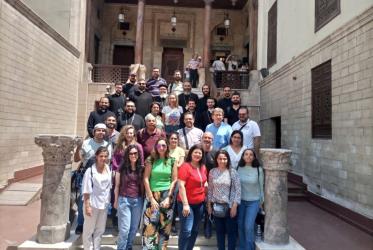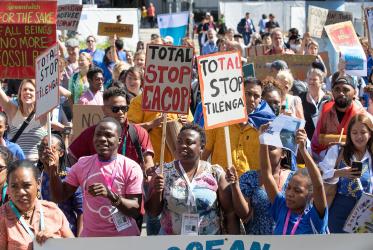Displaying 1 - 20 of 81
17 April 2024
WCC, WHO commemorate 50 years of collaboration
04 April 2024
WCC webinar explores decolonizing beauty
11 December 2023
Ahead of Her Time
Pan-African Women of Faith and the Vision of Christian Unity, Mission, and Justice
01 November 2023
ACT Alliance general secretary: “equity is not negotiable”
26 September 2023















